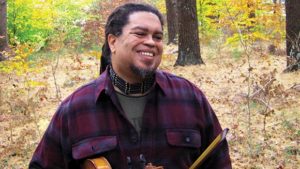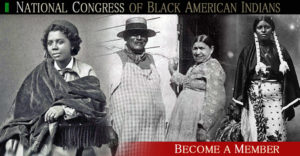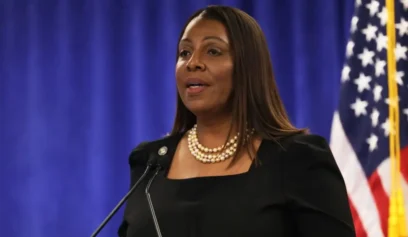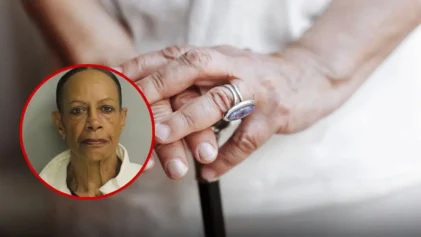
Mwalim, (Morgan James Peters) directs the African and African-American Studies program at the UMass Dartmouth
While many Blacks claim some sort of Native ancestry, often undocumented, there is a population of Black people in America who have a strong link to their Native American roots and they are starting to assert their cultural identity.
Many Blacks have Native American ancestry in their bloodline that tie them to a variety of Eastern tribes, director of the Institute for New England Native American Studies at the UMass Boston, J. Cedric Woods, explained to the Bay State Banner.
“Most of the tribes have some degree or another of African intermixture,” Woods said. “It may be a single family line. It may be multiple lines. It may be most of the lines in the tribe. It can run the entire spectrum.”
Either way, more and more Black people are starting to embrace those lines.
One example is Morgan James Peters, a director of the African and African-American Studies program at UMass Dartmouth, who prefers to go by Mwalim.
Mwalim is similar to the Swahili term meaning teacher.
Mwalim has traced his ancestry back to both Africa and North America as a member of the Mashpee Wampanoag tribe.
“My primary identity is I’m a Black Wampanoag,” Mwalim said. “It’s having a foot in both communities, being part of the Wampanoag community, being part of the Black community and recognizing that they’re not mutually exclusive.”
In other words, Black people should know that they don’t have to choose between their Native American roots and their African roots.
More people are indeed starting to realize that.

Participants did not have to prove their Native lineage, which was perfect for new members who were looking to discover more about their roots.
For a long time, most organizations did require members to prove their ancestry to some degree beyond just oral tradition.
“Tribes have all kinds of…ways to determine whether somebody meets particular criteria to be a citizen of a particular government,” Woods continued. “You have some tribes who use blood quantum…How much of that blood is required is all across the map.”
There is also a population of Black people that are considered citizens of Native nations although they didn’t necessarily have Indian blood.
These people are descendants of people who were enslaved by Cherokee, Seminole, Creek, Choctaw or Chickasaw Indians.


